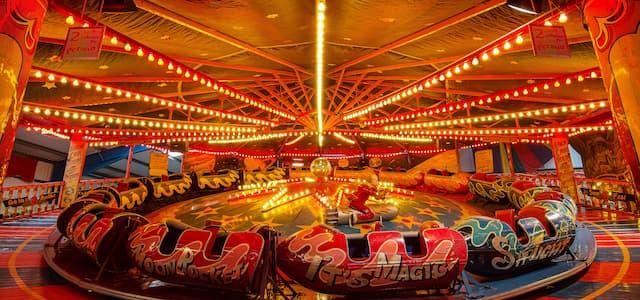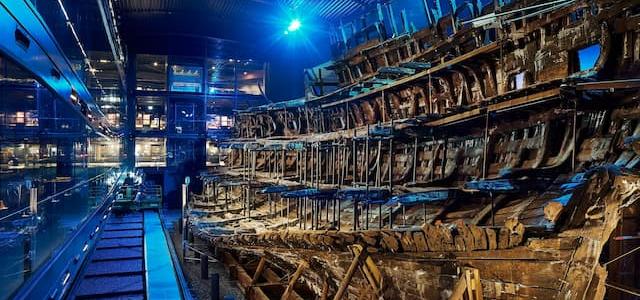
Imperial War Museum to expand Cabinet War Rooms to public
£2million grant from the National Heritage Memorial Fund allows Imperial War Museum to expand Cabinet War Rooms' experience

In 1995 the Cabinet War Rooms began pressing for the return of extensive areas of the historic site, which had been closed off since 1945.
After five years of tough negotiations by CWR Director Phil Reed they were granted permission to occupy them. Now, with the aid of a £2million grant from the National Heritage Memorial Fund, the Imperial War Museum plans to reinstate these areas and make them accessible to the public.
For decades after the war this complex of tiny rooms, that had served for so long as the nerve centre of military planning, was used by the Ministry of Defence and the Treasury to store their archive - on shelves jammed between the period steel girders and the concrete air raid precaution slab above. Astonishingly, all the original features remain intact and, using contemporary photographs, these historic areas will be restored to look just as they did in wartime.
The project falls into two distinct phases. The first phase will involve the Courtyard Rooms. Central to this phase will be the ‘Churchill Suite’ comprising the Churchill’s underground private dining room and kitchen, an adjacent bedroom for Mrs Churchill and office/bedrooms for Churchill’s closest staff and Ministers. In addition, this phase will see the creation of; an expanded education facility, a café and a major conference facility. Building work is due to be completed by July 2002 and the once secret rooms are scheduled to open to the public in spring 2003, doubling the current floor space of the CWR.
In response to worldwide public interest, the second phase will involve a large part (900 square metres) of the historic space being re-occupied to be used to house a museum dedicated to the life and achievements of the man considered by many as the ‘greatest man of the 20th century’ – Sir Winston Churchill.
The museum, which will contain artefacts and exhibits illustrating the whole of Churchill’s life, will cost £5million to fit out and forms phase two of the CWR redevelopment project. It is hoped to open the Churchill Museum in 2005, to coincide with the 60th anniversary of the end of the war and the fortieth anniversary of Winston Churchill’s death.
The Cabinet War Rooms are a branch of the Imperial War Museum. Though the latter is partly state funded, the CWR receives no public money and its operations and development have to be funded entirely from self-generated income.
As a national museum it does not have the facility to borrow funds for any purpose and, obliged to complete their project by the same June 2002 deadline as that for the refurbishment of the Treasury Building above it, they devised an imaginative PPP (Private Public Partnership) funding route to enable the project to proceed within the tight window of opportunity.
Phase one funding
A business plan was developed allowing the developer – Exchequer Partnership, comprising Bovis Lend Lease and Stanhope Plc - to take over the head lease of the CWR and to design, build and finance the redevelopment project, recouping their capital outlay from increased rent from their tenant over a course of 29 years. The National Heritage Memorial Fund awarded a grant of £2million which enabled the project to be realised, while Halifax Bank of Scotland provided financial backing to Exchequer Partnership.
Funding the Churchill Museum
Fitting out the Churchill Museum has been costed at £5million all of which is to be found from fund raising, in the UK and in the USA, where, if anything, Sir Winston Churchill enjoys even greater status than he does in his own country.
Notes to editors
Phil Reed, Director of The Cabinet War Rooms
Phil Reed was born in Liverpool and educated at the universities of Bristol and Leicester. He joined the staff of the Imperial War Museum in February 1975 and for many years was responsible for their vast collection of captured German documents of the Second World War. He went on to become Deputy Keeper of the Department of Documents overseeing much of the acquisition of private papers for the museum.
He has been Director of the Cabinet War Rooms since March 1993, during which time he has taken audience levels there from 210,000 per annum to 310,000 and has been the leading force behind the re-incorporation of extensive areas of the wartime site that have been closed to the public since the War. After six years of his campaigning for the restoration of Churchill’s underground domestic suite and the establishment of the very first Churchill Museum in the formerly hidden areas of the CWR, his goal is about to be achieved.
Phil Reed has written several articles about wartime bunkers, the history of the CWR and Winston Churchill in the Second World War in a range of publications including History Today, Finest Hour (the Journal of the International Churchill Society) and The Family and Local History Handbook. He is the author of the academic introduction to the Public Record Office’s information pack ‘Churchill as War Leader’ and has written the text for several displays and exhibitions on aspects of Winston Churchill’s life for the CWR.
His public ‘appearances’ extend from addressing (in French) the Association of the Croix de Guerre in the Paris Senat and the Conseil General of the Departement du Pas-de-Calais in Arras, through conferences on Bunkers Emden (in German) and the Channel Islands, to addressing the Museums Association Conference (on the presentation of war museums) and the Directors of Nasdaq (on Churchill’s wit). He has given numerous radio and TV interviews about Churchill and the Cabinet War Rooms for the media in the UK, USA, Europe and the southern hemisphere.
Among the numerous visitors of note whom he has personally welcomed to the CWR are: Presidents Clinton and George W Bush, Prince Edward, The Grand Duke of Luxembourg, Chairman Arafat, Prime Minister Chernomyerdin, General Colin Powell, President Tabo Mbeki, Charlton Heston, Meg Ryan and Stephen Spielberg.
Further information
Contact Lydia Davies or Katie Owen, NHMF and HLF press office,
Phone: 0171 591 6035 / 32 / 36.

